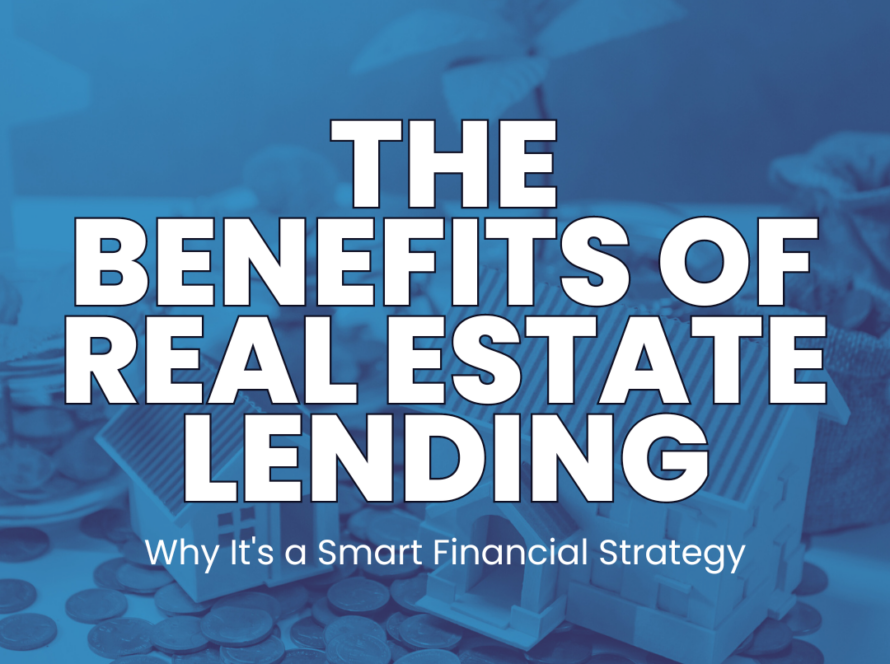Private real estate lending is a great way to generate passive income, but success depends on one crucial factor: finding reliable borrowers. Even the best lending strategies can fail if the borrower lacks experience, financial stability, or a solid exit plan.
A bad borrower can lead to late payments, project delays, or even total default—putting your investment at risk. On the other hand, a trustworthy, experienced borrower increases the likelihood of smooth repayment and strong returns.
In this guide, you’ll learn how to identify high-quality borrowers, the best places to find them, key vetting techniques, and red flags to watch out for. By the end, you’ll have a proven strategy to connect with the right investors and protect your capital.
How to Identify Safe and Profitable Real Estate Lending Deals
Where to Find Reliable Borrowers
Real Estate Investment Groups
Local and online real estate investment groups are great places to find borrowers actively working on deals. Many experienced investors attend networking events to connect with lenders. Look for:
- Local real estate meetups and REIA (Real Estate Investors Association) meetings.
- BiggerPockets and other online real estate forums.
- Industry conferences and private lending events.
Building relationships in these groups allows you to find borrowers with strong reputations and proven track records.
Referrals from Other Lenders
One of the best ways to find trustworthy borrowers is through referrals. Experienced private lenders often know reliable investors looking for funding. Establishing relationships with other lenders helps you find pre-vetted borrowers.
Ask seasoned lenders:
- Who have you worked with successfully in the past?
- Do you know any borrowers looking for funding?
A referral from a trusted source significantly reduces your risk.
Real Estate Agents and Wholesalers
Real estate agents and wholesalers work closely with investors who need funding for deals. Partnering with them can provide early access to borrowers looking for capital.
Agents and wholesalers can introduce you to serious investors actively closing deals.
Direct Outreach to Investors
If you want to be proactive, reach out to real estate investors directly. Strategies include:
- Social media networking: Connect with investors on LinkedIn, Facebook real estate groups, and Instagram.
- Investor websites: Many real estate investors have websites showcasing their projects—reach out to discuss funding opportunities.
- Cold email or phone calls: Contact investors in your area and offer your lending services.
Characteristics of a Strong Borrower
Finding a borrower is one thing—finding a reliable borrower is another. Look for these key traits:
Proven Real Estate Experience
Experienced borrowers are more likely to complete projects successfully. Ask for:
- A track record of completed deals.
- Case studies of past projects.
- References from previous lenders or partners.
If a borrower has never completed a project, proceed with caution.
Strong Financial Stability
A borrower’s financial situation directly affects their ability to repay your loan. Review:
- Credit history: A strong credit score (typically 680+) shows responsible financial behavior.
- Cash reserves: Ensure they have enough liquidity to handle unexpected costs.
- Existing debt obligations: Borrowers with too much debt may struggle with repayments.
Financial stability reduces the risk of default.
Clear Exit Strategy
A borrower must have a well-defined plan for repaying your loan. Common exit strategies include:
- Selling the property after renovations (fix-and-flip).
- Refinancing into a long-term mortgage (buy-and-hold investors).
Ensure their strategy aligns with the deal’s timeline and market conditions.
Strong Market Knowledge
Borrowers should understand the local market where they’re investing. Ask them:
- What’s the demand for properties in this area?
- How long do similar properties take to sell?
- What’s their backup plan if the market shifts?
Investors who know their market are more likely to execute their strategy successfully.
Red Flags to Watch Out For
Even if a borrower seems promising, certain red flags indicate potential risks. Be cautious if you notice:
No Track Record or Incomplete Past Projects
New investors may lack the experience needed to execute a deal properly. If a borrower has:
- No completed projects.
- A history of abandoned or failed deals.
They may not be ready for private lending.
Unrealistic Profit Projections
Some borrowers overestimate their profits or underestimate expenses. Watch out for:
- Extremely high after-repair value (ARV) estimates.
- Unrealistic renovation budgets.
- Tight timelines that don’t allow for potential delays.
If their numbers don’t add up, the deal is too risky.
Poor Communication or Evasiveness
A trustworthy borrower should be transparent and responsive. Avoid borrowers who:
- Hesitate to share financials or project details.
- Provide vague or inconsistent information.
- Avoid answering direct questions about past deals.
Poor communication is a sign of potential issues down the road.
Weak Credit and Cash Flow
Even if a borrower has experience, weak financials increase risk. Be cautious if:
- Their credit score is low (under 600).
- They lack cash reserves to cover unexpected costs.
- Their existing debt load is excessive.
These issues can lead to delayed or missed payments.
Questions to Ask Before Lending
Before approving a borrower, ask these critical questions:
Project and Experience-Related Questions
- Can you provide details on your last three projects?
- How do you handle unexpected challenges during a project?
- What’s your process for budgeting and timeline management?
Financial and Loan-Related Questions
- What is your planned exit strategy for this deal?
- What other debt do you currently have?
- How much of your own money are you putting into this project?
Market and Deal-Specific Questions
- Why do you believe this market is a good investment?
- What makes this deal stand out from others?
- Do you have backup strategies in case the market changes?
Asking the right questions helps you determine if a borrower is prepared, responsible, and trustworthy.
How The MicroBanking Method Helps You Connect With the Right Borrowers
Finding and vetting borrowers can be overwhelming, especially for new lenders. The MicroBanking Method simplifies this process by providing:
- Access to a network of vetted real estate investors.
- Training on borrower evaluation and risk management.
- Legal guidance on structuring loan agreements for protection.
By using proven frameworks, you can confidently identify borrowers who are likely to succeed and ensure your investments are protected.
Conclusion
Finding reliable borrowers is the foundation of a successful private lending business. By networking with the right people, evaluating experience and financial stability, and recognizing red flags, you can minimize risk and maximize returns.
A strong borrower is one who has experience, financial stability, and a clear exit strategy. By asking the right questions and following a structured vetting process, you’ll avoid costly mistakes and build a sustainable lending portfolio.
Want to connect with experienced, pre-vetted borrowers? Visit The MicroBanking Method to learn how to streamline your private lending strategy and secure profitable deals with confidence.



